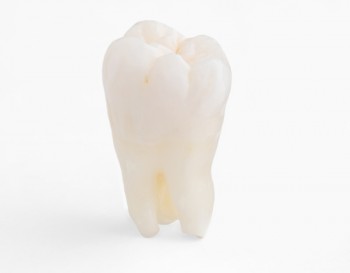Oral Surgery (Extractions)

Overview
Oral surgery generally defines any type of surgical procedure that deals with the mouth, throat, teeth, jaws, head and neck. Typically, oral surgery is necessary when a tooth has decayed or damaged beyond the repair of a root canal. It is also necessary when a tooth becomes impacted (see Wisdom Teeth). Surgical procedures such as these are commonly followed by the placement of dentures, bridges, or implants.
Warning Signs
Any pain that is felt in the jaw, teeth, neck, or head area may be indicative of a number of disorders that must be treated with oral surgery. Some of the reasons for these types of pain include:
- Grinding your teeth at night
- Damage to a tooth or nerve
- Infections
- Impacted or improperly aligned wisdom teeth
The presence of any Temporomandibular Disorders or many of their common symptoms should also be communicated with your dentist. These symptoms include:
- Tenderness or pain in the face, jaw joint area, or around the ear
- An inability to open your mouth wide, or any pain experience upon attempting
- Jaws that get stuck in a locked open or closed-mouth position
- Clicking or popping noises when chewing or opening and closing your mouth
- Difficulty chewing or sudden discomfort when biting
- Swelling on either side of the face
Types of Extractions
If oral surgery is prescribed by your dentist, you will undergo one of the two types of extractions:
- Simple extractions: For teeth that have already fully erupted from your gums an extraction can be made without making any incision into the gums. For this relatively painless procedure only a local anesthetic is used. This will effectively numb the patient without having to render them unconscious. After the effects of the anesthesia are felt, the dentist will use an elevator to lift the tooth, which will be removed from the mouth using forceps.
- Surgical extractions: These procedures are necessary when a tooth has either been impacted or has large or curved roots. For a surgical extraction, general anesthesia is also a choice if the patient is too anxious to be conscious. For this extraction your dentist will make an incision to gain access for the removal of the tooth.
Patient Experience Post-Procedure
The time needed for healing and the procedures themselves will be dependent on how complicated the necessary extraction is. Before undergoing any type of surgery, your dentist will talk to you about the details of your particular situation and address any issues that you may have now or in the future after the extraction.
The following should be expected post-procedure:
- With any anesthetic, numbness should be expected accompanied by difficulties chewing or even speaking. This is only temporary.
- The recovery time for surgical extractions is typically longer than for simple extractions
- Your dentist will give you instructions for managing pain and swelling as inflammation is generally greater after surgery
- Along with maintenance instructions, a list of recommended food items will be given to you as well.
- Facial bruising and slight bleeding from the wound is to be expected and should be resolved in a matter of days
- If you were given stitches to close the incision you may have to make a follow-up appointment to have them removed, otherwise they will dissolve over time
- You should abstain from smoking and other activities that can cause blood clots, such as drinking through a straw or rinsing, for at least 24 hours after the procedure.





